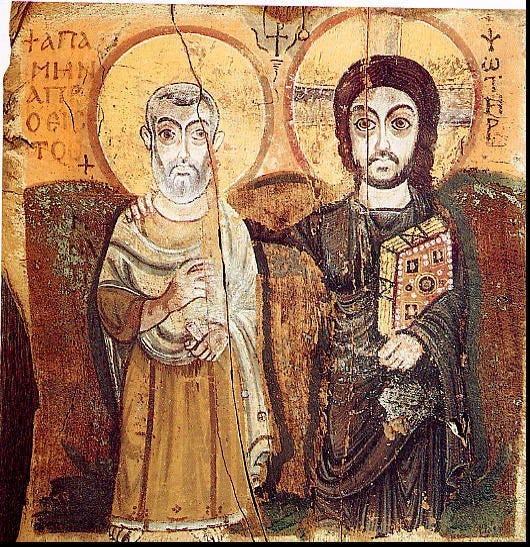
When the pandemic hit in 2020, for the most part my life wasn’t impacted too dramatically. The seminary closed and I finished my studies with online classes and take-home final exams, and, obviously, there was much that we could no longer do out in the world because of closures and restrictions. But, for the most part, life for me stayed about the same: family and friends were still around, there was still schoolwork to do, and living at a parish gave me access to the sacraments.
Some friends I knew suffered more than me, especially regarding family life. Brothers or sisters or parents who had moved away from home now paid a price for their transiency. For a couple of decades, there wasn’t much cost for our wandering: you could move away from home for a job or retirement or a new life whenever you wanted, and easily get back to see family by plane or train or bus; moving around the country was easy. But the pandemic shut down travel, and suddenly people who had moved away found themselves cut-off from family and friends. Those months were hard for many people.
The dictionary says that ‘transiency’ means: the state or quality of lasting only a short time. To live a transient life means that you never really put down roots, stay in one place for very long, get invested, make commitments that bind you to living a certain way or being a certain kind of person. I was thinking a lot about transiency last week out in California. I worked through a book on the history of westward expansion in the 19th century, so many families setting out by wagon to find a better life in Oregon or California. The transiency of those generations really surprised me. People would travel so far to start a new life for themselves, and then not long after a new life was started, they would start looking for the next opportunity, the next best life, and just keep moving.
Christ talks about the dangers of spiritual transiency in the Gospel today. He tells us to remain in his love. What does Christ mean? He means that we cannot wander out there in the world on a search for meaning or fulfillment looking for other sources for joy or happiness or whatever it is we think will make our lives good. Christ is living a real human life, so he knows that remaining in his love means to stay in one place, and that it is hard for us to stay in one place for very long. There is something inside of us that makes us want to wander, find the next best opportunity, just keep moving along with the hope of making ourselves more happy, more satisfied, more joyful.
Christ knows for himself what St. Augustine will say so simply a few centuries later: our hearts are restless until they rest in God, and it is our deep interior restlessness that always threatens to take us someplace else, to prevent us from remaining in the love of Christ. The love of Christ, if you think about it, is actually the default condition of our existence; the love of Christ is a free gift given to everyone; you get the love of Christ in your life just for showing up and breathing and living. And all you need to remain in the love of Christ is not go anywhere else: no spiritual or moral wandering, no following different opportunities looking for joy and happiness or meaning or fulfillment, no acting on temptations that cause you to take that first step away from where you belong.
The danger that Christ is talking about is idolatry. The risk of idolatry is subtle and insidious, and we don’t talk about it as much as we probably should. For most of us, the risk of idolatry is not about melting down precious metals to worship a golden calf in the desert because you feel alone and abandoned by God. Idolatry for us is more simple, less dramatic, and harder to identify. For us, idolatry is usually a matter of good-hearted, well-intentioned wandering, looking for new people or opportunities or experiences that will help give meaning and fulfillment and happiness to our lives, and then slowly but surely making those people or opportunities or experiences more important to us than Christ. All the sudden, often from the best of intentions, we are struggling to remain in the love of Christ because some other love has become more important to us.
What I want to do now is give you three ways to help you with remaining in the love of Christ, staying in one place for your whole life, for not wandering and getting yourself in trouble with idolatry and bad worship.
First, make sure you put down roots in Christ and the Church. You can’t live the life of a spiritual transient, moving from hotel to hotel, hoping one day to find some place that makes life better, always looking at a road map wondering where you’ll go next because you still aren’t as happy as you want to be. You need to buy a house in Christ’s neighborhood—which is the Church—and get invested.
The good news is that you can renovate your spiritual life as often as you want, hire yourself some contractors and put an addition onto your spiritual home, paint the house a different color, join different organizations or support groups that work in your neighborhood. Remaining in the love of Christ does not mean that your life always needs to stay the same, get stagnant and stale: we have 2,000 years’ worth of tradition and liturgy and devotional practices and ways of engaging with Christ that are there for us to make our home in Christ, and just about all of them are as good as any others. What your life in Christ looks like can change; all that matters is that you don’t go anywhere else searching for meaning and happiness.
Second, you need to pay your taxes and make sure that your spiritual home in Christ’s neighborhood is up to code. That means you need to live the life of the commandments, whether that is easy for you or not. And as Christ makes clear in the Gospel today, the greatest commandment is the command to love. You can’t spend your whole life making improvements and repairs to your own house, or inside your home working on your own spiritual projects, if you want to remain in the love of Christ. The one who wants to save his life must lose it, and what that means is that you need spend less time working on your own home than you spend helping someone else work on theirs. You need to go out the front door of your soul and cross the street and get involved in the lives of others, in their need and suffering and struggles.
The risk with the spiritual life is that we will make our own well-being or even our own salvation into an idol, into something that actually separates us from Christ because we make it more important than remaining in the love of Christ the way Christ tells us to remain in his love. Our remaining in the love of Christ needs to look a certain way, and that way is defined by the life of constant, perpetual charity: love one another as I love you, says Christ, and no one has greater love than this, he says, than to lay down one's life for one's friends. If you want to remain in the love of Christ, go sacrifice for other people.
Finally, you need to fill your home and your life in Christ with all kinds of furniture and features and activities and experiences without making any of those good things more important to you than Christ himself. What I mean is that Christ alone will not be enough for you: you need food and shelter and water and relationship and labor and activities that nourish your soul if you want to live a full life in Christ. Making Christ the meaning of your life means finding the ways that Christ wants you to be engaged in the world around you. Maybe through a family, maybe through religious life, maybe through certain forms of work or service to the Church, always through the great gift of friendship and community. The good things in life, the best of things, will both bring you to Christ and become the ways through which Christ brings himself to you.
But none of those good things can become more important than Christ himself, not even something as supernaturally beautiful as family life. We need order in our lives because some things are simply more important than others even though most good things are almost always connected to one another and flow into one another and support one another. Your labor can help you get to Christ and help Christ get to you, but your labor is not more important than Christ. Your friendships or community life can help you get to Christ or help Christ get to you but is never more important Christ. Your family life will absolutely help you get to Christ and help Christ get to you, but your family life is not more important than Christ.
Here the risk of idolatry is the most subtle and insidious: we take the very best things in life, the gifts that Christ himself has given us, and we make them more important than Christ himself. Keeping the good things in life in the proper order is essential for us. Any good thing will help get us to Christ, but no good thing is as good as Christ himself.
The point I want to make with my homily is that remaining in the love of Christ does not mean that your life needs to become boring, redundant, stale, stagnant. Staying in one place is hard for us to do; there will always experiences and opportunities and temptations that threaten to take us from the love of Christ simply because we like to wander and search out new ways to make ourselves happy and fulfilled. We are restless until we rest in God, but resting in God can become—if we get life right—an adventure filled with the very best parts of life, each of them leading us to Christ and through each of them, Christ coming to us.
Homily preached at the Basilica of the National Shrine of the Assumption of the Blessed Virgin Mary on Sunday, May 5th, 2024












